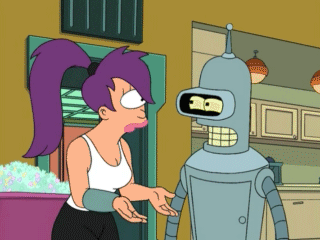An old man sat at an oversized desk in a undersized office. He dressed in a poor attempt at being fashionable. He displayed, in addition to the minimal academic credentials, useless marks of distinction for social fads of passing use to burnish his credibility. He looked less a man than a man-like mockery, weak and ineffectual. On his desk sat a sign, shining in the rare afternoon sun: "Dr. G.H. Lane, PhD."
Over an old intercom, the man heard a young woman speak: "Dr. Lane, Mr. Dan is here to see you."
Before Lane could allow Dan to enter, the latter man did just that.
"It's been a while, Gary." Dan said, "You're the department head now? How does it feel to run a useless degree mill?"
Lane looked up with a snarl on his lips. "Get in, and lock the door behind you."
Dan did, and Lane took a moment to take him in: in good shape, clean cut, looking like he'd just come out of Chinatown, and carrying a pistol in a shoulder holster.
"You're working, Dan?" Lane said, "Or is this part of the family business?"
Dan took a seat. "You didn't call me to ask a favor, Lane."
Lane sighed. "The big one's been finalized." Lane put a manila folder on his desk. "Project Omelas."
Dan took up the folder and began reading. "They're serious." he said, "And this scheme will work?"
Lane's snarl became a wicked grin. "Of course. I authored it, and you did your part. How could it fail? The final parts are in place, and failsafes are active to three degrees."
"Simultaneously detonating nuclear warheads in the ten most populated cities in the world, and then having the Agency's pet terrorists take the fall?"
"We have full-spectrum dominance, Dan. The Narrative will hold, and in the shock the peoples of the world will accept it. As for the naysayers, they'll be rounded up under color of law by the end of the year." Lane said, "Which brings me to the reason you're here."
Dan kept reading. "You're taking point on local operations here." he said, "So you want me back on the team as your #2."
Lane leaned back in his chair, putting one hand to his forehead while making a sign like as if to say "Okay." but leaving the other fingers out; a careful, or knowing, look saw the 666 symbol in that sign. Dan returned it.
"Go on to the second part." Lane said, pointing to the folder.
"Oh..." Dan said, "They are serious. The logistics alone to make this coordination possible is-"
"Impossible." Lane said, "They are going to fuck it up, and at this scope and scale fucking it up means a global backlash."
Dan looked up at Lane. "Be more specific."
"The brotherhood, using the globalist fake terror attack as a front, will use the nukes as a ritual of human sacrifice. The reason for all that power is to summon the master back from beyond and into the world. But they will screw it up, and that power will instead break loose and wash all over the world. The world burns, and only those prepared will survive."
Lane leaned over his desk. "I am prepared. Join me, and so will you. Bring your family to the Space Needle for the Christmas Party. The others, and their families, will also be present. Project Omelas will be had, but not as they intended."
"Solador." Dan said, "You're going to make Solador real?"
"And follow my thesis instead of the intended one."
Dan nodded. "I'll be there."
